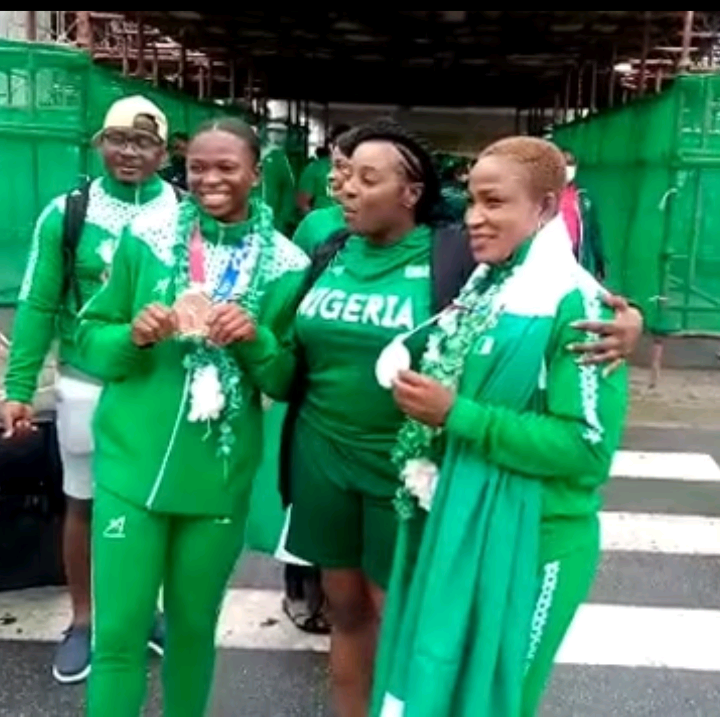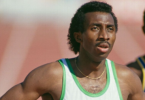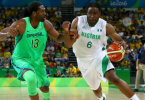The 2020 Summer Olympics held in Tokyo, ended with team Nigeria returning with mixed blessings. The Summer Olympic games (held every four years) was the 32nd edition (which ran from the 23rd of July to 8th of August 2021). Nigeria ranked 74th position overall, and 8th position in Africa amongst all participating countries. Nigeria’s performance at the last Olympic games, aptly put, was their best show since 1996.
Nigeria has regularly featured in every Summer Olympics games since 1952 – with the exception of the 1976 edition. And the nation also recorded participation in just one Winter Olympics games – the one of 2018. For the first time ever, Nigeria won a medal (bronze) in the Tokyo 1964 Summer Olympics (and ranked 35th overall).
The Olympics Summer Games: An Analysis of Nigeria’s Performance till Date
For the record, we recall that 1996 was the golden year for Nigeria at the Atlanta Summer Olympics Games. In 1996, Nigeria won a total of 6 medals: 2 Gold, 1 Silver, and 3 Bronze – the best performance to date. It was also the year Nigeria made history as the first African nation to win an Olympic gold medal in football. The then Nigerian football team captain, Kanu Nwankwo, won African Player of the Year.
Also, Chioma Ajunwa broke the long jump record in the Atlanta Summer Olympics of 1996, winning Gold at 7.12 meters. That record was finally overtaken by Ese Brume with a record 7.17 meters in long jump at a separate event. That was at the Chula Vista field festival, California, USA.
Unfortunately, Nigeria has not been able to either duplicate or overtake the performance at the Atlanta Summer Olympics Games ever since. The Nigerian contingent in the following years, recorded a relapse in performance as outlined below.
- 2000 Sydney Olympics Games: 3 medals (1 Gold and 2 Silver)
- 2004 Athens Olympics Games: 2 Bronze medals
- 2008 Beijing Olympic Games: 5 medals (3 Silver and 2 Bronze)
- 2012 London Olympics Games: No medal
- 2016 Rio De Janeiro Olympics Games: 1 Bronze medal
In fact, it was the Nigeria U-23 men’s football team that won the only medal, a Bronze, for the country in the Rio 2016 Olympics. This time, the team failed to qualify for the Tokyo 2020 Olympics.
Key Events that Marred Nigeria’s Performance at the Last Olympic Games (Tokyo 2020)
Nigeria’s performance at the last Olympics Games (Tokyo 2020) was further shaken with a spate of disqualifications and injuries. Altogether, at least 10 athletes failed out-of-competition drug tests and were disqualified.
The worst case was that of Blessing Okagbare. The female athlete was not only disqualified from the Tokyo Olympics Games. Okagbare has been slammed with an 11-year ban from athletics on a 3-count charge of failed tests, missed test and misconduct. The said ban effectively ended her glorious career, as the ban will expire in 2032.
High Points in Nigeria’s Performance at the Last Olympic Games
However, team Nigeria managed to redeem itself with 2 Olympic medals at Tokyo 2020. Blessing Oborodudu wọn a Silver medal in wrestling; while Ese Brume won Bronze in long jump.
A few slight improvements were also noted in the personal records of Team Nigeria athletes. For instance:
- Ese Brume broke Chioma Ajunwa’s record in long jump for the first time in 25 years (since Atlanta 1996 Olympics)
- 21-year-old Enoch Adegoke succeeded in reaching the 100 meters men’s finals. He is the third Nigerian to ever achieve that feat.
- Nigeria reached the Olympics finals in shot put for the first time ever
- 5 Nigerian team athletes were able to reach the finals at the Tokyo 2020 Olympics
- Nigeria won a Silver medal in women’s wrestling – a commendable feat indeed
Team Nigeria and the Olympics Games: Observations
It has become a tradition that following the return from every Olympics Games, preparation commences for the Commonwealth Games. The Commonwealth Games are a unifying event for all former colonies of the British Empire; it has been held every four years since 1930. The Commonwealth Games also welcome other countries who aspire to have (and maintain) alliances with the UK. Nigeria participated in 15 of the 22 editions of the Commonwealth Games (between 1950 and 2022).
One might wonder about the possible relationship between the Commonwealth and Olympics Games. Aside the fact that they are both global sports events; and most nations of the world participate in both.
Notably, the Nigerian team’s performance at the Commonwealth Games has been significantly better than at the Olympics Games. For instance, the 2022 Commonwealth Games held at Birmingham, UK was a boom for Nigeria – the best performance ever. The Nigerian team won a record 35 medals – 12 Gold, 9 Silver and 14 Bronze.
It has been observed, though, that the Commonwealth Games is a significant catalyst. Preparations for, and performances at the Commonwealth Games has a positive impact on the chances of Team Nigeria at the next Olympics Games. To earn even Bronze medals at the Commonwealth Games boosted the morale of Team Nigeria athletes ahead of the next Olympics.
To buttress the point. Certain sports analysts observed a 42.9 percent higher chance of Nigerian athletes who won Bronze medals at the Commonwealth Games, winning Silver medals in the next Olympics. And over one-quarter of the Gold medals won at the Olympic Games came from Bronze winners in the previous Commonwealth games. Finally, the Silver medals won at the Commonwealth Games helped Nigerian athletes to win in all medal categories in the next Olympics Games.
Nigeria and the Olympics Games: Recommendations for The Future
Without doubt, preparations of Team Nigeria for the Olympic Games should be taken far more seriously. In particular, building on their performance and readiness for the previous Commonwealth Games is necessary. This should involve all stakeholders in Nigerian sports, as well as the government.
The Ministry of Youth and Sports Development, along with the various sports supervisory bodies in Nigeria have more work to do. Definitely they need to improve the lot of Nigerian athletes. Policy makers and stakeholders in Nigerian sports must progress from mere talk and paper policy to implementing real solutions. And they need to start grooming and helping athletes right from the academies and schools that produced them.
It is also critical that sports development should be actively carried out in every sporting activity where Nigeria has international representation. Particularly as regards providing enough equipment, coaching, remuneration and incentives to all serious athletes. Way too much attention has been given to men’s football, to the detriment of other sports activities in Nigeria.
If this is not done, more athletes of Nigerian origin will continue to switch their citizenship (and allegiance) to foreign countries. For the simple reason that they are well taken care of in developed nations, than back home.








